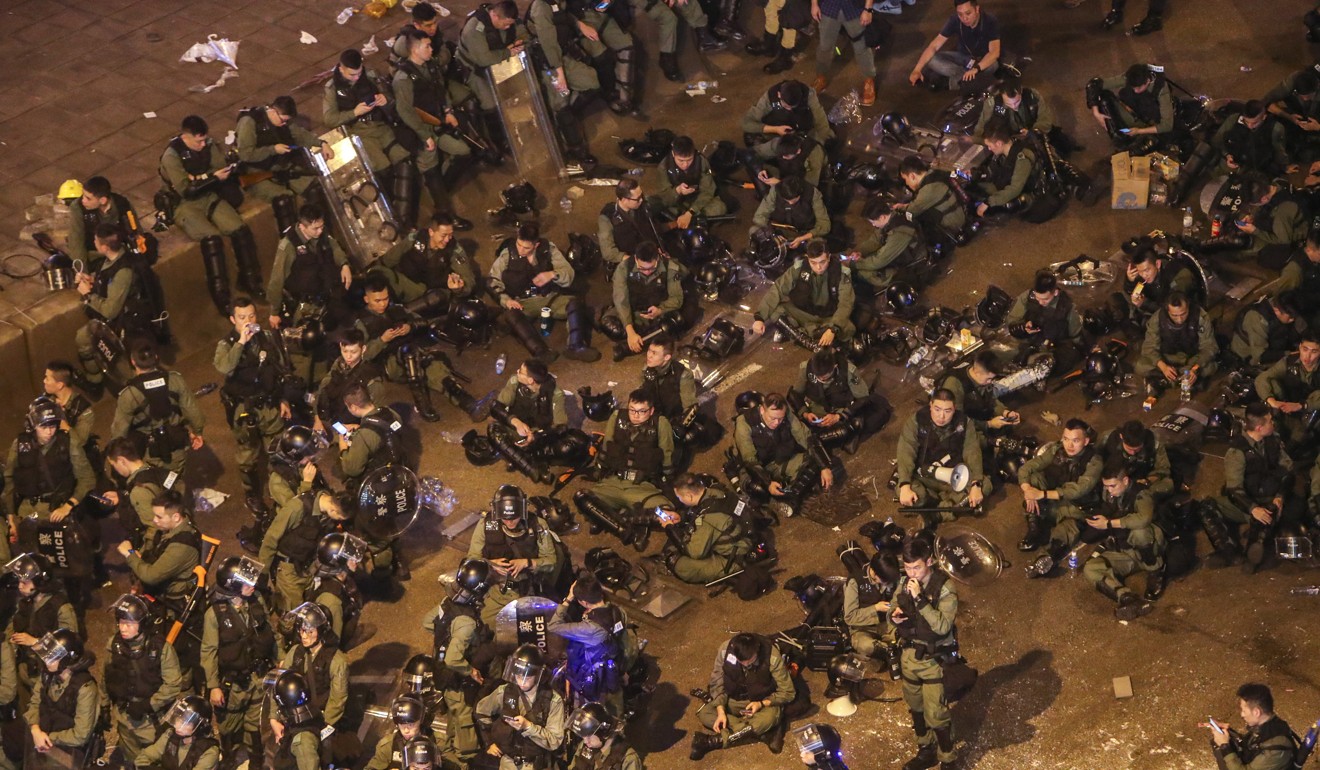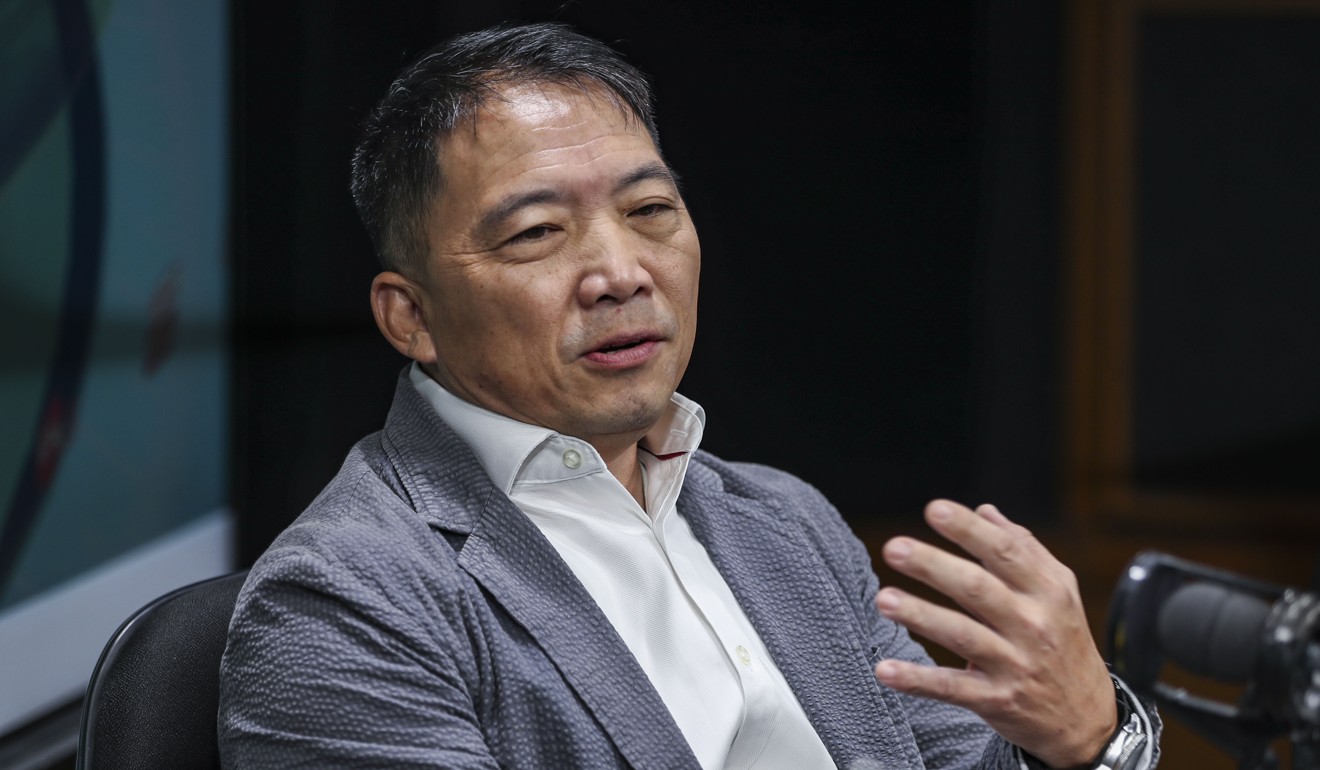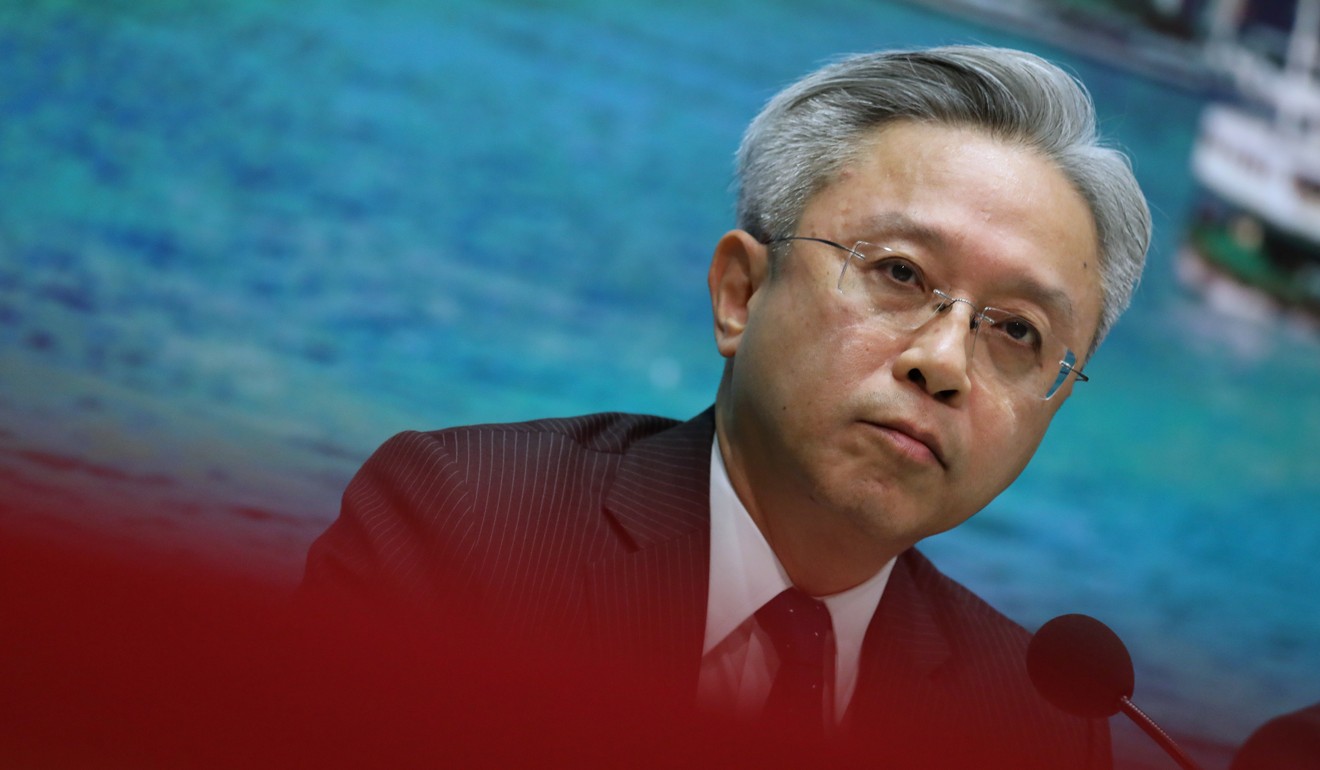
Almost HK$1 billion spent on police overtime pay since Hong Kong protests broke out in June
- Amount revealed as lawmakers met to scrutinise the government’s funding request for a pay rise for civil servants
- Opposition lawmakers had asked government to remove police force from funding request

Hong Kong police have been paid nearly HK$1 billion (US$128.2 million) in overtime pay over the past six months of social unrest and often violent protests, the government has revealed.
The amount was disclosed on Friday in a Security Bureau paper to the Legislative Council as lawmakers met to scrutinise the government’s funding request for a pay rise for civil servants.
Opposition pan-democratic politicians had asked the administration to remove police from the funding request, arguing that there should be a separate discussion on pay rises for the 30,000-strong force, which has come under fire from some quarters over its handling of anti-government protests since June.
The ongoing protests have stretched the Hong Kong Police Force to the limit, and the government has been trying to cope by recruiting “special constables” from other disciplined services, including the Correctional Services Department.

Sparked by the now-withdrawn extradition bill, the protests have developed into a wider anti-government movement, with escalating levels of violence as radicals clash with police.
In the government paper, the Security Bureau revealed that in each of the past six months, about 11,000 police officers had received a Disciplined Services Overtime Allowance (DSOA).
“The relevant expenditure in total was approximately HK$950 million,” it read.
That would mean each of the 11,000 officers received HK$14,394 a month on average in overtime pay since June.
Legco approved the government’s 2019-20 budget in May, including a provision of around HK$20.2 billion for police salaries, allowances and other operating expenses. The paper said the financial secretary could seek more funding if the approved provision was not enough. In the 2018-19 year, police spending was HK$19.5 billion.
The bureau also noted there were rules in place on overtime payments.
“Time off in lieu is the normal recompense for OT work performed … Where the granting of time off is, or is likely to be, impracticable within 30 days of the date on which OT work is performed, payment of DSOA to eligible officers may be approved,” it said.
The bureau also said while the maximum amount of overtime work a civil servant could undertake was normally 60 hours a month, the force had adjusted the ceiling. But it did not elaborate further.
A police source said the overtime ceiling for operation Tiderider, launched in June to target anti-government protests, was capped at 150 hours per month.
Officers of chief inspector rank or below could earn overtime pay, which was calculated by the hour based on their salary, while superintendents or above would only receive compensation leave.
A chief inspector, who has been on the protest front lines since June, said he worked an extra 150 hours each month on top of 190 regular hours. His monthly salary was around HK$100,000 but he earned an extra HK$60,000 a month, or HK$360,000 in total, since June.
But the extra money could not compensate for the extreme physical and mental exhaustion, he said, and he would rather not work overtime.
“We are not talking about working overtime for a week, but six months non-stop. There are so many times I’ve worked a 36-hour shift and I have also missed my son’s and wife’s birthdays,” he said.
“HK$1 billion sounds massive. But we didn’t cheat to get the money. It is hard-earned money. We are exposed to life-threatening risks and doxxing. I would rather go back to my normal shift and my normal life.”

New People’s Party chairwoman Regina Ip Lau Suk-yee, a veteran pro-establishment politician and former security chief, said the overtime pay was a result of an unusually large number – more than 900 – of public order events this year.
“Police have to serve very long shifts, it is only reasonable that people are compensated for the work they do. I believe police would rather society was peaceful and they worked less overtime,” she said.
But opposition lawmaker Lam Cheuk-ting said the pan-democrat camp would “use all means” to stop the government paying the overtime allowance to police, or giving them a pay rise.
“Over the past six months, police have been involved in numerous incidents of abuse of violence and power,” the Democratic Party lawmaker said. “It is absolutely unacceptable for the public that the government now requests that police are paid an OT fee with public money.”
Council Front lawmaker Au Nok-hin also called for a review of the financial secretary’s power to seek unlimited overtime payments for civil servants.
Meanwhile, at the Legco Finance Committee meeting on Friday, pan-democrats urged the government to send representatives from the police force to answer their questions.
“It is not only us who have grievances, but over half of citizens have given police a zero score,” Democratic Party chairman Wu Chi-wai said, referring to a poll by a local university.
“It is just reasonable for police representatives to come to Legco and address our concerns.”
But Secretary for the Civil Service Joshua Law Chi-kong rejected the calls, saying lawmakers should not consider the performance of the civil service in the meeting.
“Lawmakers have other channels including the civil service panel to follow up on the performance issue,” he said. “We are handling a livelihood issue here, the issue of the pay scale for all of the civil service.”
Pan-democrat lawmaker Gary Fan Kwok-wai urged all citizens to recognise the faces of pro-establishment lawmakers who rejected the need to have police attend the meeting.
“It is you who are sending bullets to police who shoot Hongkongers and create a humanitarian crisis in the city,” he said.

The pro-establishment camp fought back, with lawmaker Priscilla Leung Mei-fun saying police had ensured the safety of Hongkongers amid the violence of rioters.
Pro-establishment legislator Holden Chow Ho-ding accused the pan-democrats of destroying Hong Kong’s systems. He said his camp was dissatisfied with the Education Bureau, as it had failed to punish teachers who incited hatred in society, but the bloc would not pinpoint a particular authority in scrutinising the funding request.
“If all departments are required to attend the meeting, the funding cannot be passed for a long time,” he said.
The bloc shot down pan-democrats’ demands, but Ted Hui Chi-fung further requested that Commissioner of Police Chris Tang Ping-keung be summoned to the meeting.
In the afternoon session of the meeting, lawmakers engaged in a debate over the procedure for summoning officials to meetings. Tang did not appear.
Additional reporting by Sum Lok-kei